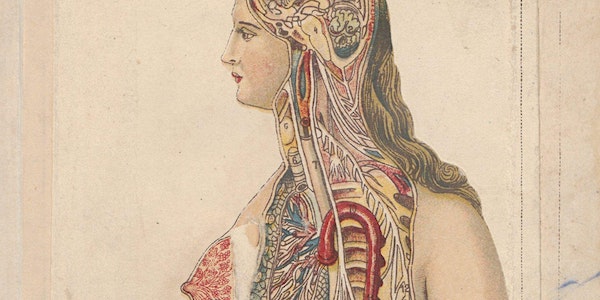Body as a Source of Pleasure and Pain around 1900: Female Polish-Jewish Perspectives
23/01/2023 | Na stronie od 21/12/2022

Source: Institute for Polish-Jewish Studies
Discourses on female body and sexuality in 1900s Poland will be discussed from a Jewish perspective.
Hybrid workshop, Monday 23 January 2023 10.00-16.45
The early 1900s in the Polish lands was a time when body, and a woman’s body in particular, became a focus of the discussion between the supporters of women’s emancipation, physicians, social activists, writers and journalists. With the emergence of new scientific disciplines like psychology, sexology and criminology woman’s body became an object of scientific research.
Scientists took over the role of religious leaders to impose norms and decide what is appropriate for a woman to do with her body and what is not. After 1905 Revolution and its failure in the Russian Empire and the Kingdom of Poland the discussion among physicians, social activists and women’s emancipationists on controlling woman’s body and its ability to procreation reached its climax.
For feminists and intellectual elites of the time prostitution served as an introduction to other key social problems, such as birth control, poverty, work opportunities for women, sexualized violence – matters which remain significant areas of political debate to this very day. Development of criminology and popularity of Cesare Lombroso’s works diverted the discussion towards the question whether the predilection to sex work was an inborn trait or economically conditioned choice.
In the Polish lands the supporters of the latter were gathered around Paulina Kuczalska-Reinschmit’s circle of feminists and Lviv-based journal Świat Płciowy (Sexual World), while the supporters of the notion of atavism and inherited criminality were related to Cracow circle of feminists and Cracow-based Czystość (Purity), a journal edited by Augustyn Wróblewski, who opted for abstinence as, in his view, pleasure from sexual act was jeopardized by the pain of a disease that one could easily catch.
Because the discourses on female body and sexuality were impacted by the emergence of nationalism and racism, and in common view Jews were responsible for ‘white slavery’ and rising number of prostitutes in the Kingdom of Poland and in Galicia, looking at those discourses from a Jewish perspective may further our understanding of Polish-Jewish relations, and of Jewish and Polish social and cultural history.
PROGRAMME
10:00 – 10:15 – Welcome speech Prof. François Guesnet (UCL), Dr Zuzanna Kołodziejska-Smagała (University of Warsaw)
10:15 – 10:55 Dr Zuzanna Kołodziejska-Smagała, “I had such a horrible headache” – Body problems in Polish-Jewish ego-documents at the beginning of the twentieth century
10:55 – 11:45 Prof. Rachel Manekin (Professor Emerita, University of Maryland), Bits and Pieces: Body in ego-documents of Galician Jewish women from Orthodox families
Discussant: Dr Siobhàn Hearne (University of Durham)
11:45-12:45 Lunch break
12:45-13:35 Prof. Joanna Degler (University of Wroclaw), Corporeality in Sara Schenirer’s Polish Diary
13:35 – 14:25 MA Sylwia Stokłosa (Jagiellonian University), Mutilated Body in Rachel Fajgenberg’s Narration
Discussant: Prof. Elissa Bemporad (Queens College, City University of New York)
14:25 – 14:35 Break
14:35 – 15:25 MA Anna Berezowska (University of Wroclaw), Mikveh Ritual in Malka Lee’s Works
15:25 – 16:15 Dr Irina Rabinovich (Holon Institute of Technology), Wilhelmina Wittigschlager’s Minna: The Portrait of a Dazzling Jewish Feminist, Anarchist and Nihilist
Discussant Prof. Natalia Aleksiun (University of Florida)
16:15 – 16:45 Summing up discussion with invited participants
Cooperating partners: University of Warsaw Faculty of History, Institute for Polish-Jewish Studies, UCL Institute of Jewish Studies, UCL Department of Hebrew and Jewish Studies, University of Vienna, Faculty Center for Transdisciplinary Historical and Cultural Studies.
Participation in the discussion is open to anyone interested, but online registration to the event will be required.
Registration:
Registration is free via Eventbrite. Please click the REGISTER button below and fill in your details on the Eventbrite site. Once you have registered, you will receive your Zoom link with your Eventbrite confirmation. This zoom link will be sent to you once again just before the lecture takes place.
Please consider making a donation to the IPJS, to help us continue to provide programmes such as this. Just click the DONATE button below.